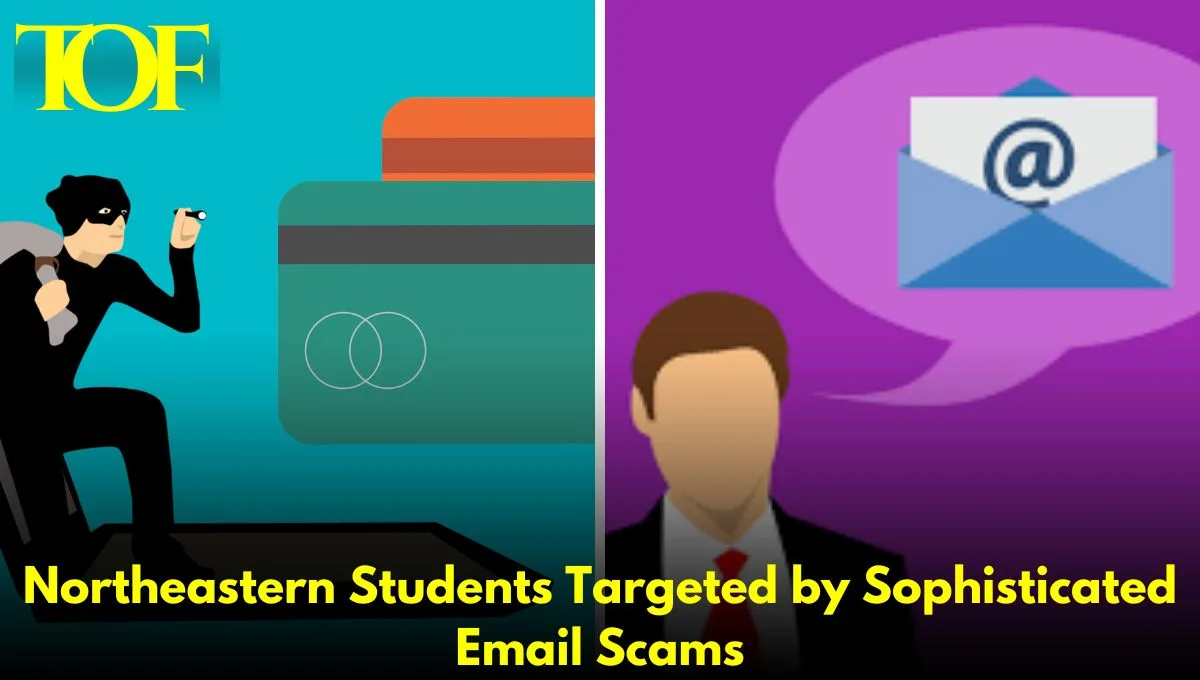In April 2023, a second-year business administration major at Northeastern University lost $1,000 after falling for an email scam that she found in her school account inbox.
The scam email advertised a lucrative part-time job with the “Human Resource Unit” of the Ford Foundation. Caslli, still in her senior year of high school at the time, replied to an email allegedly from a “Dr. Walter Brandon.” This “doctor” mailed fraudulent checks to Caslli, instructing her to deposit the checks and transfer the money via Zelle to a third party. A few days later, the checks bounced, placing Caslli in a financially compromised position.
Another scam went out to Polina Kailash, a third-year architecture major, through an email with an “@northeastern.edu” address. The student believed it was legit and followed instructions to deposit the checks and buy gift cards. When the checks were discovered as fake, she faced financial and emotional stress.
Both students said that they trusted the fraudulent communications because of the use of their Northeastern email accounts. Even with the implementation of additional security measures, including Duo Authentication, phishing emails continue to occur. Some of them seem to originate from email addresses inside the university system, which only makes them sound even more believable.
Students have complained that the university has not been very responsive to these incidents. They claim there is no proactive communication and accessible resources. Caslli said Northeastern’s IT staff recognized the scams but didn’t give out enough warnings or support.
Northeastern’s Office of Information Security has advice on how to detect phishing scams and keeps an archive of known scam emails, but students feel that more specific measures are required to get the word out and promote safe cyber practices.
As phish scams become increasingly clever, concerns over data protection and email security at Northeastern only continue to rise. Many are calling for stiffer preventative measures and university transparency.
To Read More: Technology

